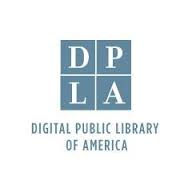Digital Media Library
i.pel’s digital media library will contain all i.pel original content and Open Educational Resources (in development).
DIGITAL PUBLIC LIBRARY OF AMERICA
Dp.la/
The vision of a national digital library has been circulating among librarians, scholars, educators, and private industry representatives since the early 1990s. Efforts led by a range of organizations, including the Library of Congress, Hathi Trust, and the Internet Archive, have successfully built resources that provide books, images, historic records, and audiovisual materials to anyone with Internet access. Many universities, public libraries, and other public-spirited organizations have digitized materials, but these digital collections often exist in silos. The DPLA brings these different viewpoints, experiences, and collections together in a single platform and portal, providing open and coherent access to our society’s digitized cultural heritage.
The DPLA planning process began in October 2010 at a meeting in Cambridge, MA. During this meeting, 40 leaders from libraries, foundations, academia, and technology projects agreed to work together to create “an open, distributed network of comprehensive online resources that would draw on the nation’s living heritage from libraries, universities, archives, and museums in order to educate, inform, and empower everyone in current and future generations.”
In December 2010, the Berkman Center for Internet & Society at Harvard University, generously supported by the Alfred P. Sloan Foundation, convened leading experts in libraries, technology, law, and education to begin work on this ambitious project. A two-year process of intense grassroots community organization, beginning in October 2011 and hosted at the Berkman Center, brought together hundreds of public and research librarians, innovators, digital humanists, and other volunteers—organized into six work-streams and led by a distinguished Steering Committee—helped to scope, design, and construct the DPLA.
The DPLA is led now by Executive Director Dan Cohen and guided by a Board of Directors comprised of leading public and research librarians, technologists, intellectual property scholars, and business experts from around the country. DPLA
The Digital Public Library of America (DPLA) is a project aimed at bringing about a large-scale public digital library. It was launched by Harvard University’s Berkman Center for Internet & Society in 2010, with financial support from the Alfred P. Sloan Foundation and several other funders. It “aims to unify such disparate sources as the Library of Congress, the Internet Archive, various academic collections, and presumably any other collection that would be meaningful to include. … They have yet to … decide such issues as how near to the present their catalog will come. There is an ongoing dispute regarding so-called ‘orphan works’ and other questions of copyright.” John Palfrey, co-director of the Berkman Center, stated in 2011: “We aspire to establish a system whereby all Americans can gain access to information and knowledge in digital formats in a manner that is ‘free to all.’ It is by no means a plan to replace libraries, but rather to create a common resource for libraries and patrons of all types.”
Critiques
Among the critiques of the project: its vagueness, lack of internal cohesion, potentially redundant overlap with similar efforts (such as Project Gutenberg), and potential to redirect financial support away from existing public libraries. It has been suggested that in contrast to the brick-and-mortar public library, a digital public library may not be suitable for providing adult literacy training or fostering young children’s cognitive development. Some public librarians have also expressed a concern that a national digital library will divert and reduce traditional public library funding which received a fast response from the DPLA. According to Peggy Rudd, a member of the board of directors, “the Chief Officers of State Library Agencies passed a resolution at their May 11, 2011 meeting asking the steering committee to reconsider the name Digital Public Library of America, fearing that the inclusion of the word “public” would have the unintended consequence of giving local governments the excuse to reduce public library funding”.
Projects
Participants have established a wiki which outlines “work-streams” (“Audience and Participation,” “Content and Scope,” “Financial/Business Models,” “Governance,” “Legal Issues,” “Technical Aspects”) and corresponding list services. A proposed future project of the DPLA is the idea of the Scannebago, a mobile scanning unit that would travel the United States in order to digitize and curate local historical materials. Harvard staff is coordinating a broad-based team that built a digital library platform, which launched on April 18, 2013. Wikipedia
Digital Media Library Articles

Recent Comments